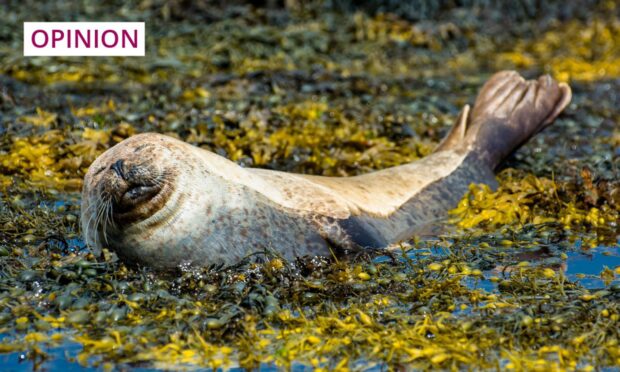Scotland’s association with vibrant wildlife, marine and scenic environments tends to suggest that the nation would be naturally well placed when looking at biodiversity and environmental protection.
However, science’s reality checks reveal that the country’s biodiversity is actually declining at alarming rates.
This decline prompts an increasingly urgent need for more environmental action through Scotland’s devolved powers on environment and rural affairs. Additionally, international biodiversity commitments also require the nation’s governance to be strengthened. Scotland’s nature capital has been on a slow decline since 1950 and must be preserved and regenerated.
Addressing the biodiversity decline calls for a whole-of-society approach, which engages all people, organisations and government in the fight.
A recent report exposed Scotland as one of the world’s most nature-depleted nations. The report also shows worrying trends in suffering wildlife, with a 49% drop in the number of Scottish seabirds across 11 species, a decline in the distribution of flowering plant, and 11% of overall species threatened with national extinction.
Curbing this decline certainly requires government action – but it also calls for local people and authorities to acting as driving forces, helping to effectively deliver on policy objectives. Politicians and residents living in communities are best placed to understand where biodiversity preservation and regeneration is most needed there.
Accordingly, Scotland has announced plans to bolster its biodiversity governance and lays out reforms in its Scotland Biodiversity Strategy 2045, most recently updated in September. The approach includes relying on delivery plans that should, by law, lead to stakeholders actively working against biodiversity decline, and progress monitoring entrusted to an independent review body. The new governance’s appointment, power, and capacity are currently unknown, but these arrangements should be detailed in the upcoming Natural Environment Bill.
Aim is to turn Scotland into a nature-positive nation
The announced biodiversity legislation reflects interactive government approaches mainstreamed in Scandinavian countries’ natural capital and ecosystem services strategies. These new arrangements should provide the necessary improvements for greater biodiversity programmes and their monitoring by action-specific working groups through five-year delivery plans.
This structure will inevitably call for government reform and new funding – locally, particularly, despite stretched finances and resources. It will hinge on local capacity to contribute to the national effort for greater biodiversity outcomes.
These goals are not just about nature protection but nature restoration as early as 2030, by statutorily halting and reversing Scotland’s natural decline. This milestone, aimed at turning Scotland into a nature-positive nation, requires much more than shifting existing budgets from unconditional to conditional, or identifying funding gaps.
It calls for an urgent green finance rollout that should help farmers embrace the transition needed and understand how they can securely deliver more environmental benefits. This ambition includes harnessing financial services that understand how to promote investments that come with biodiversity benefits for land and nature.
We can’t let ignorance and fear stop us from doing the right thing
Understanding the need for government adaptation and Scotland’s current approach to natural capital forms part of RGU’s conference, Governing Natural Capital and Biodiversity for Scotland, coming to RGU’s Garthdee campus on November 3.
This event will feature leading figures in the sector who will join forces to discuss where the problems lie and what we can and should be doing about it. With greater indication coming from central government that progress will certainly require more local government delivery, speakers will consider the coming reforms and see how Scotland’s independent environmental agencies, government and science and education sectors will need to join forces to work more closely together.
Citizens and leaders in Scotland have no excuse for failing to act on biodiversity
The emergency raised by the current state of Scotland’s biodiversity requires greater action and accountability across society, with government becoming better at managing inter-institutional networks for policy action. This priority calls for new strength in leadership, capable of transversal strategy delivery through a whole-of-government, and whole-of-society approach to meet Scotland’s priority biodiversity actions set for 2030 and 2045.
Ignorance and fear lead humans to look away from priorities, assuming that time and the action of others will help mend what should become yesterday’s problems. Citizens and leaders in Scotland have no excuse for failing to act on biodiversity. The scientific evidence clearly shows just how fast Scotland’s natural resources and species are depleting.
Nicolas Maulet is a lecturer in energy law and policy law at Robert Gordon University


Conversation